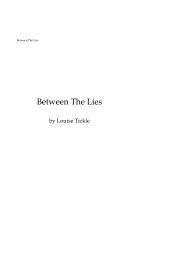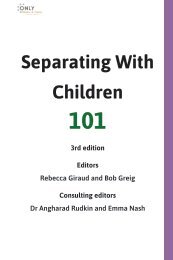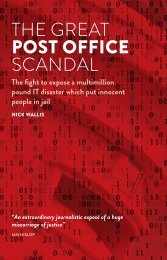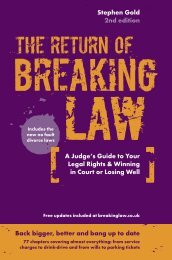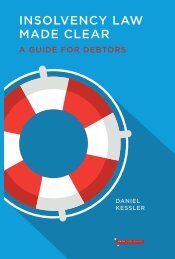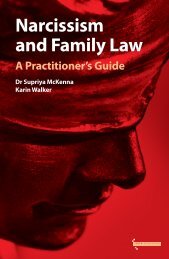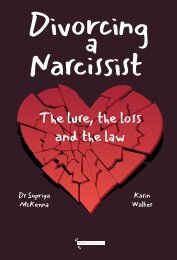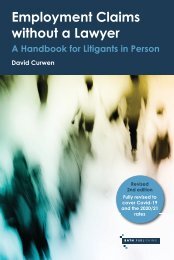The 'Secret' Family Court: Fact Or Fiction?
For approaching two decades, family courts have been accused of making life changing decisions about children and who they live with made in secret, away from the scrutiny of the public gaze. Recognising the force of these accusations, senior family courts judges have, over that time, implemented a raft of rule changes, pilot projects and judicial guidance aimed at making the family justice more accountable and transparent. But has any progress been made? Are there still suspicions that family judges make irrevocable, unaccountable decisions in private hearings? And if so, are those suspicions justified and what can be done to dispel them? In this important and timely new book, Clifford Bellamy, a recently retired family judge who has been at the sharp end of family justice during all these changes, attempts to answer those questions and more. He has spoken to leading journalists, judges and academic researchers to find out what the obstacles to open reporting are – be they legal, economic or cultural - and interweaves their insights with informed analysis on how the laws regulating family court reporting operate. Along the way he provides a comprehensive review of the raft of initiatives he has seen come and go, summarises the position now and uses this experience to suggest how this fundamental aspect of our justice system could adapt in the face of this criticism. Every professional working in the family justice system – lawyers, social workers, court staff and judges - as well as those who job it is to report on legal affairs, should read this informative, nuanced exposition of what open justice means and why it matters so much to those whose lives are upended by the family justice system.
For approaching two decades, family courts have been accused of making life changing decisions about children and who they live with made in secret, away from the scrutiny of the public gaze. Recognising the force of these accusations, senior family courts judges have, over that time, implemented a raft of rule changes, pilot projects and judicial guidance aimed at making the family justice more accountable and transparent.
But has any progress been made? Are there still suspicions that family judges make irrevocable, unaccountable decisions in private hearings? And if so, are those suspicions justified and what can be done to dispel them?
In this important and timely new book, Clifford Bellamy, a recently retired family judge who has been at the sharp end of family justice during all these changes, attempts to answer those questions and more. He has spoken to leading journalists, judges and academic researchers to find out what the obstacles to open reporting are – be they legal, economic or cultural - and interweaves their insights with informed analysis on how the laws regulating family court reporting operate. Along the way he provides a comprehensive review of the raft of initiatives he has seen come and go, summarises the position now and uses this experience to suggest how this fundamental aspect of our justice system could adapt in the face of this criticism.
Every professional working in the family justice system – lawyers, social workers, court staff and judges - as well as those who job it is to report on legal affairs, should read this informative, nuanced exposition of what open justice means and why it matters so much to those whose lives are upended by the family justice system.
You also want an ePaper? Increase the reach of your titles
YUMPU automatically turns print PDFs into web optimized ePapers that Google loves.
<strong>The</strong> ‘Secret’ <strong>Family</strong> <strong>Court</strong> – <strong>Fact</strong> <strong>Or</strong> <strong>Fiction</strong>?<br />
An intense focus on the comparative importance of the specific rights<br />
being claimed in the individual case is necessary before the ultimate<br />
balancing test in the terms of proportionality is carried out.”<br />
In addition to the rights set out in Articles 8 and 10, it is also necessary to<br />
have regard to the parties’ rights under Article 6 of the Convention. Article<br />
6 guarantees the right to a ‘fair and public hearing’. Article 6(1) provides<br />
that:<br />
“In the determination of his civil rights and obligations or of any<br />
criminal charge against him, everyone is entitled to a fair and public<br />
hearing within a reasonable time by an independent and impartial<br />
tribunal established by law. Judgment shall be pronounced publicly<br />
but the press and public may be excluded from all or part of the trial<br />
in the interest of morals, public order or national security in a democratic<br />
society, where the interests of juveniles or the protection of the<br />
private life of the parties so require, or the extent strictly necessary<br />
in the opinion of the court in special circumstances where publicity<br />
would prejudice the interests of justice. (emphasis supplied).”<br />
As the underlined words indicate, the Convention acknowledges that there<br />
can be legitimate and justifiable reasons for allowing an exception to the<br />
requirement to hold a hearing in public.<br />
<strong>The</strong> position in law is, therefore, more complex than may at first appear. It<br />
is simply not possible to contend that because open justice is a fundamental<br />
aspect of our commitment to the rule of law it inevitably follows that every<br />
court hearing must take place in public. <strong>The</strong>re have always been exceptions<br />
– principled exceptions – that are not inconsistent with the importance of<br />
the general principle of open justice. As was said by Viscount Haldane L.C.<br />
in Scott v Scott, 17 the exceptions to the principle of open justice:<br />
“are themselves the outcome of a yet more fundamental principle that<br />
the chief object of <strong>Court</strong>s of justice must be to secure that justice is<br />
done.”<br />
If it can be shown that in any particular case applying the principle of open<br />
justice would be likely to defeat the ends of justice, the need to ensure that<br />
justice is done overrides the principle of open justice.<br />
Expressing the position in that way suggests that the decision about<br />
17<br />
[1913] UKHL 2.<br />
18



